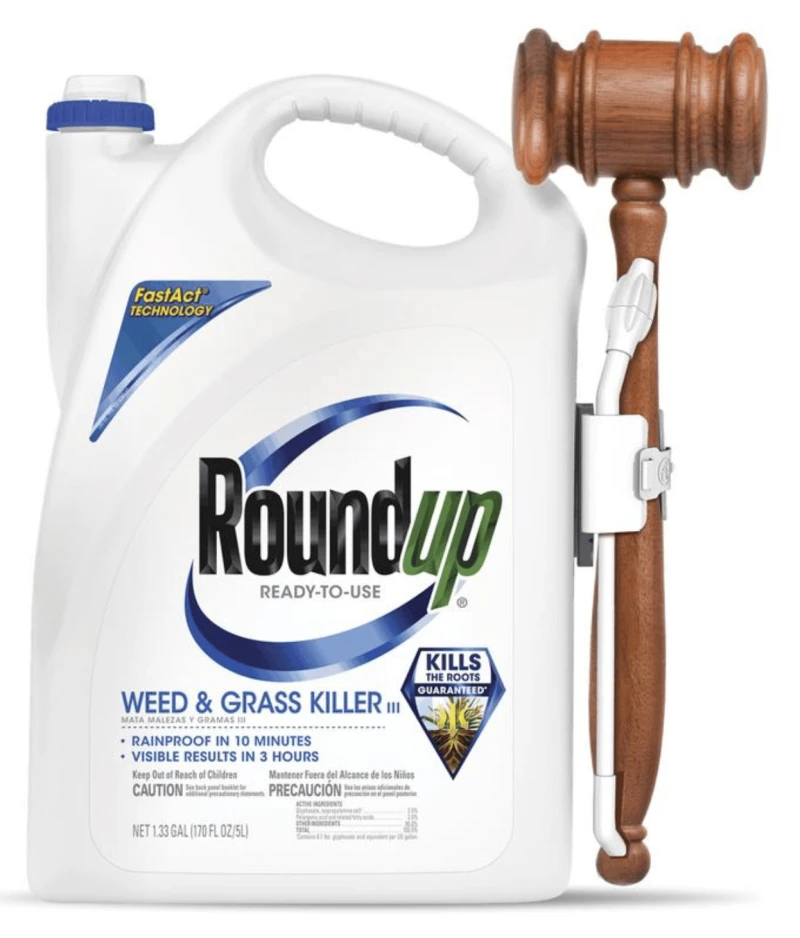Viewpoint: How did glyphosate became the target of advocacy groups and tort lawyers — considering no global science organization concludes traces in our food pose cancer risks?
Viewpoint: How did glyphosate became the target of advocacy groups and tort lawyers — considering no global science organization concludes traces in our food pose cancer risks?


No, Roundup [glyphosate] sprayed in his garden did not cause Mark McCostlin’s non-Hodgkin’s lymphoma (a rare form of cancer), a Missouri state court judge ruled, acquitting Monsanto even before the end of the trial. “No evidence,” found Judge Brian May, sending the army of lawyers surrounding the plaintiff, a 58-year-old man recruited via a television advertisement, like the 160,000 other Americans accusing Monsanto of having caused their cancer.
Dozens of law firms are jumping into the fray – spending more than $100 million on television ads to recruit clients. “Are you suffering from cancer? Maybe it’s glyphosate. Call us!”
The deal is simple. The procedure costs nothing to the complainant; if he wins, he pays 30% of the amount to the law firm…
“These class actions are a real business in the United States, they can bring predatory firms billions of dollars,” explains journalist Gil Rivière-Wekstein , who devoted a book to the affair (Glyphosate, the impossible debate, Le Publieur) which reads like a thriller. In total, 160,000 complaints will be filed against Monsanto. Unable to face so many procedures, the firm, bought by Bayer, accepted an agreement worth 10 billion dollars, in June 2020, to resolve 113,000 complaints. But no more effort has been made since then to liquidate the remaining 40,000… “Studies proving the non-dangerousness of glyphosate are accumulating, and we have been able to show that non-Hodgkin lymphomas were mainly due to chance, not to the environment,” confides a source at Bayer.
…
A prime [claim is that] glyphosate has not been evaluated according to objective criteria, its detractors are outraged. In reality, on this highly corrosive subject, experts do not speak the same language. On the one hand, serious academics claim that their work has been unduly dismissed by agencies relying too heavily on industry studies. On the other hand, EFSA [European Food Safety Authority] swears that it has included 800 publications from universities or independent institutes in its corpus of 2,400 studies. What about it?
[Editor’s note: This article has been translated from French and edited for clarity]
This is an excerpt. Read the original post here

 | Videos | More... |

Video: Nuclear energy will destroy us? Global warming is an existential threat? Chemicals are massacring bees? Donate to the Green Industrial Complex!
 | Bees & Pollinators | More... |

GLP podcast: Science journalism is a mess. Here’s how to fix it

Mosquito massacre: Can we safely tackle malaria with a CRISPR gene drive?

Are we facing an ‘Insect Apocalypse’ caused by ‘intensive, industrial’ farming and agricultural chemicals? The media say yes; Science says ‘no’
 | Infographics | More... |

Infographic: Global regulatory and health research agencies on whether glyphosate causes cancer
 | GMO FAQs | More... |

Why is there controversy over GMO foods but not GMO drugs?

How are GMOs labeled around the world?

How does genetic engineering differ from conventional breeding?
 | GLP Profiles | More... |

Alex Jones: Right-wing conspiracy theorist stokes fear of GMOs, pesticides to sell ‘health supplements’




 Viewpoint — Fact checking MAHA mythmakers: How wellness influencers and RFK, Jr. undermine American science and health
Viewpoint — Fact checking MAHA mythmakers: How wellness influencers and RFK, Jr. undermine American science and health Viewpoint: Video — Big Solar is gobbling up productive agricultural land and hurting farmers yet providing little energy or sustainabilty gains
Viewpoint: Video — Big Solar is gobbling up productive agricultural land and hurting farmers yet providing little energy or sustainabilty gains Fighting deforestation with CO2: Biotechnology breakthrough creates sustainable palm oil alternative for cosmetics
Fighting deforestation with CO2: Biotechnology breakthrough creates sustainable palm oil alternative for cosmetics Trust issues: What happens when therapists use ChatGPT?
Trust issues: What happens when therapists use ChatGPT? 30-year-old tomato line shows genetic resistance to devastating virus
30-year-old tomato line shows genetic resistance to devastating virus California, Washington, Oregon forge immunization alliance to safeguard vaccine access against federal undermining
California, Washington, Oregon forge immunization alliance to safeguard vaccine access against federal undermining The free-range chicken dilemma: Better for birds, but with substantial costs
The free-range chicken dilemma: Better for birds, but with substantial costs ‘You have to treat the brain first’: Rethinking chronic pain with Sanjay Gupta
‘You have to treat the brain first’: Rethinking chronic pain with Sanjay Gupta
